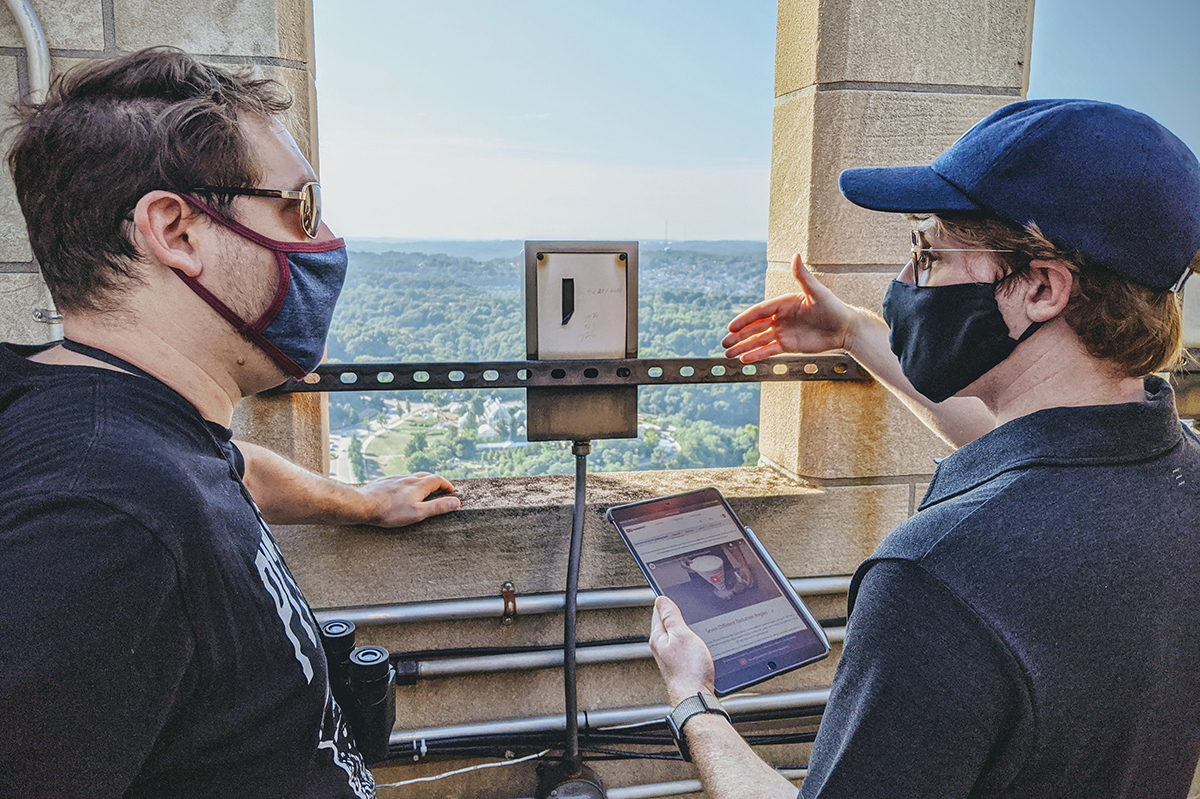CMU Helps Provide Free WiFi to Area Students Partnership With Pitt, Community Groups Creates Unique Nonprofit Network
Byron SpiceMonday, November 9, 2020Print this page.

Carnegie Mellon University has joined with Meta Mesh Wireless Communities, the University of Pittsburgh and the Keystone Initiative for Network-Based Research (KINBER) in an unprecedented partnership to provide free, high-speed internet access primarily to school-age children as the COVID-19 pandemic forces the integration of remote instruction.
The new program, called Every1online, will provide WiFi to eligible households during a 12-month pilot program and has begun enrolling households in the Coraopolis, Homewood and New Kensington areas. The goal is to expand the program to additional communities in Western Pennsylvania after the pilot period.
"To live and work in today's digital society, it is essential to have access to the internet," said Adam Longwill, executive director of Meta Mesh, a nonprofit organization that will construct and operate the WiFi network. "Unfortunately, many people in our own city of Pittsburgh cannot afford the internet services they need. Every1online is one way to begin to see internet access as a human right."
Every1online is the first nonprofit wireless internet model in the country. Collaborators from the CMU School of Computer Science and the Simon Initiative are providing critical start-up funding for the project and serving as liaisons with key stakeholders and community groups. They will provide ongoing project design, implementation and fundraising support.
"This kind of interorganizational collaboration, where large institutions and community organizations come together to solve complex, pressing challenges together, is essential for developing meaningful, impactful solutions," said Maggie Hannan, associate director of the Simon Initiative. "We are so thrilled to be a part of this collaborative and to have this chance to make real change in our city."
Every1online will provide high-speed broadband internet that is optimal for simultaneous video conferences. While the pilot program seeks to prioritize households with students and those in need, any household within the service area can sign up to receive in-home equipment and connect to the network. Signups will continue through Jan. 31, 2021. Visit Meta Mesh's project page for more details.
"So many of our students live in poverty, or other circumstances that prevent them from having access to high-speed internet, which is what they need to learn remotely," said Kris Hupp, director of technology and instructional innovation for the Cornell School District in Coraopolis. "This collaboration is really making the statement that these kids deserve equitable internet access."
Ashley Williams Patton, director of the Computer Science Pathways program in SCS, emphasized that the goal isn't just to provide a Band-Aid to help students during the pandemic but to also address ongoing issues relating to internet access.
"COVID-19 did not create the digital divide, but it is highlighting existing inequities in the education system," she said. "We're attempting to create a solution that doesn't go away — that sustainably alleviates a systemic problem."
Pitt's Cathedral of Learning will serve as a super node/hub for the network. In addition to funding, Pitt is providing its extensive community engagement efforts and will support stakeholder and community involvement in additional neighborhoods following the pilot. KINBER, Pennsylvania's statewide research, education, and community network organization, will provide a gateway to the internet through its PennREN Fiber.
The New Kensington-Arnold and Cornell school districts, as well as the Homewood Children's Village, are collaborators. Every1oneline is made possible with support from the Hopper Dean Foundation, the R.K. Mellon Foundation and the Burrell-New Kensington Rotary Club.
Byron Spice | 412-268-9068 | bspice@cs.cmu.edu
